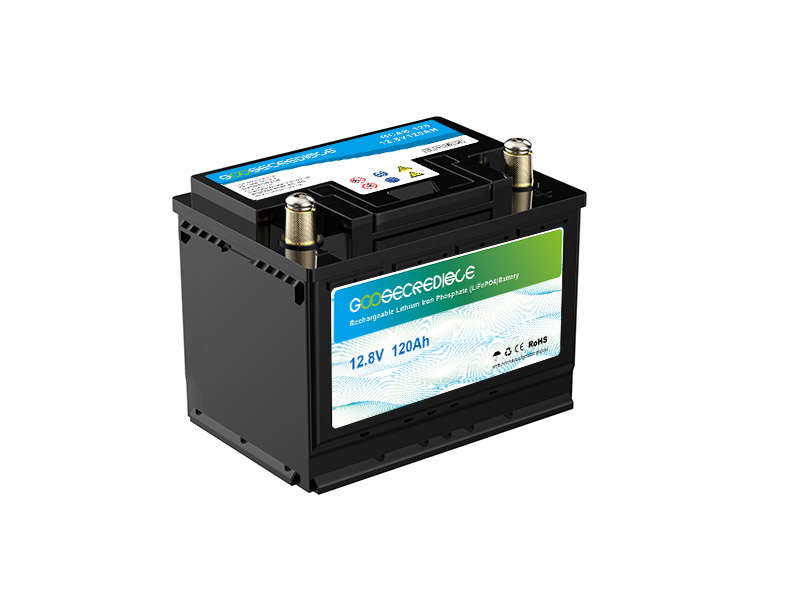Revolutionizing the Energy Industry: The Impact of Smart Grids and Lithium Batteries
In recent years, there has been a growing concern about the need to transition towards cleaner and more sustainable sources of energy. With the increasing demand for electricity and the urgency to reduce greenhouse gas emissions, the energy industry has been forced to explore new technologies and innovations. Two of the most promising advancements that are revolutionizing the energy industry are smart grids and lithium batteries.
Smart grids are a modernized version of the traditional electrical grid system. They incorporate advanced communication and automation technologies to optimize the generation, distribution, and consumption of electricity. By utilizing a network of sensors, meters, and control devices, smart grids enable real-time monitoring and management of energy flow. This allows for better coordination between power plants, renewable energy sources, and consumers, resulting in improved efficiency and reliability.
One of the key benefits of smart grids is their ability to integrate renewable energy sources into the grid. Traditional grids were designed to accommodate centralized power plants that rely on fossil fuels. However, with the increasing adoption of solar and wind energy, the generation of electricity is becoming more decentralized. Smart grids are capable of handling the variability and intermittency of renewable energy sources by dynamically adjusting the distribution and consumption of electricity. This not only reduces reliance on fossil fuels but also promotes the use of clean energy.
Lithium batteries, on the other hand, have emerged as a game-changer in the energy storage sector. Lithium-ion batteries, in particular, have gained popularity due to their high energy density, long cycle life, and fast charging capabilities. These batteries are widely used in portable electronic devices, electric vehicles, and now, in grid-scale energy storage systems.
The integration of lithium batteries into the energy industry has several advantages. Firstly, it enables better utilization of renewable energy. Energy generated from solar panels or wind turbines can be stored in lithium batteries during periods of low demand and released during peak hours. This reduces the need for backup power plants fueled by fossil fuels and allows for a more efficient use of clean energy.
Secondly, lithium batteries enhance grid stability and reliability. They provide a reliable source of power during blackouts or grid failures, ensuring uninterrupted electricity supply to critical infrastructure and residential areas. Additionally, they help balance the supply and demand of electricity, reducing the risk of power outages and grid instability.
Furthermore, lithium batteries facilitate the electrification of transportation. As the world moves towards a greener future, the demand for electric vehicles is increasing rapidly. Lithium batteries enable long-range driving, fast charging, and improved performance of electric vehicles, making them a viable alternative to traditional internal combustion engine vehicles. This not only reduces greenhouse gas emissions but also decreases our dependence on fossil fuels.
Despite these numerous benefits, there are still challenges that need to be addressed for the widespread adoption of smart grids and lithium batteries. One major hurdle is the cost. While the prices of lithium batteries have been decreasing steadily, they still remain relatively expensive compared to traditional energy storage options. Additionally, the installation and infrastructure costs associated with smart grids can be significant.

Another challenge is the need for regulations and policies that support the integration of these technologies. Governments and regulatory bodies need to incentivize the deployment of smart grids and lithium batteries through financial incentives and favorable policies. This will encourage investment in research and development, promote innovation, and accelerate the transition towards a cleaner and more sustainable energy future.
In conclusion, smart grids and lithium batteries are revolutionizing the energy industry by enabling the integration of renewable energy sources, enhancing grid stability, and promoting the electrification of transportation. While there are challenges to overcome, the potential benefits are significant. With continued advancements in technology, increased investment, and supportive policies, smart grids and lithium batteries have the power to reshape the energy landscape and pave the way towards a more sustainable future.
-
 Efficient charging is an essential aspect of maintaining the performance and longevity of your vehicle's battery. The 24V on-board battery charger is a device designed to provide efficient charging for vehicles with 24-volt batteries. This article will explore the features and benefits of this device and how it can improve the performance of your vehicle. Firstly, the 24V on-board...続きを読む
Efficient charging is an essential aspect of maintaining the performance and longevity of your vehicle's battery. The 24V on-board battery charger is a device designed to provide efficient charging for vehicles with 24-volt batteries. This article will explore the features and benefits of this device and how it can improve the performance of your vehicle. Firstly, the 24V on-board...続きを読む -
 With the global awareness of environmental protection and the deepening of the concept of sustainable development, electric vehicles, as representatives of clean energy vehicles, are changing our travel methods at an unprecedented speed. In this green travel revolution, electric vehicle batteries, as its core components, play a vital role. It not only determines the endurance and performance of electric vehicles,...続きを読む
With the global awareness of environmental protection and the deepening of the concept of sustainable development, electric vehicles, as representatives of clean energy vehicles, are changing our travel methods at an unprecedented speed. In this green travel revolution, electric vehicle batteries, as its core components, play a vital role. It not only determines the endurance and performance of electric vehicles,...続きを読む -
 In today's fast-paced world, we rely heavily on technology to keep us connected and productive. However, the technology we rely on also requires a steady stream of power to operate. This is where the 48V LiFePO4 battery comes in. This high-performance battery is quickly becoming the go-to option for those looking to revolutionize their power needs. The 48V LiFePO4...続きを読む
In today's fast-paced world, we rely heavily on technology to keep us connected and productive. However, the technology we rely on also requires a steady stream of power to operate. This is where the 48V LiFePO4 battery comes in. This high-performance battery is quickly becoming the go-to option for those looking to revolutionize their power needs. The 48V LiFePO4...続きを読む -
 RV batteries play a crucial role in providing power to various electrical systems and appliances in recreational vehicles. Whether you are a seasoned RV enthusiast or a beginner, it is important to have a good understanding of RV batteries and how they work. In this article, we will explore the basics of an RV battery, including types, maintenance, and charging....続きを読む
RV batteries play a crucial role in providing power to various electrical systems and appliances in recreational vehicles. Whether you are a seasoned RV enthusiast or a beginner, it is important to have a good understanding of RV batteries and how they work. In this article, we will explore the basics of an RV battery, including types, maintenance, and charging....続きを読む -
 Introduction: Renewable energy sources, such as solar and wind power, have gained significant traction in recent years as the world seeks cleaner and more sustainable alternatives to traditional energy sources. However, their widespread adoption has been hindered by the intermittent nature of these sources and the lack of efficient energy storage systems. One promising solution to this challenge is...続きを読む
Introduction: Renewable energy sources, such as solar and wind power, have gained significant traction in recent years as the world seeks cleaner and more sustainable alternatives to traditional energy sources. However, their widespread adoption has been hindered by the intermittent nature of these sources and the lack of efficient energy storage systems. One promising solution to this challenge is...続きを読む -
 High-capacity 12V 200Ah LiFePO4 Lithium Battery: Unleashing the Power of Long-lasting Energy StorageIntroduction: In recent years, the demand for high-capacity energy storage solutions has been on the rise due to the increasing need for reliable and sustainable power sources. Amongst the various options available, the 12V 200Ah LiFePO4 lithium battery has emerged as a frontrunner in the field of long-lasting energy storage. This article explores the features, benefits, and potential applications of...続きを読む
High-capacity 12V 200Ah LiFePO4 Lithium Battery: Unleashing the Power of Long-lasting Energy StorageIntroduction: In recent years, the demand for high-capacity energy storage solutions has been on the rise due to the increasing need for reliable and sustainable power sources. Amongst the various options available, the 12V 200Ah LiFePO4 lithium battery has emerged as a frontrunner in the field of long-lasting energy storage. This article explores the features, benefits, and potential applications of...続きを読む -
 The military has always been at the forefront of technological advancements. From the invention of radar to the development of stealth aircraft, military innovations have often found their way into the civilian world. In recent years, one such advancement that is revolutionizing military equipment is the use of lithium batteries. Lithium batteries are rechargeable batteries that use lithium ions...続きを読む
The military has always been at the forefront of technological advancements. From the invention of radar to the development of stealth aircraft, military innovations have often found their way into the civilian world. In recent years, one such advancement that is revolutionizing military equipment is the use of lithium batteries. Lithium batteries are rechargeable batteries that use lithium ions...続きを読む

